On 2nd July, our project had the pleasure of joining one of our sister projects, RiskPACC during their Final Event held in Brussels.
Other Events
On 15 & 16 May, CORE attended the 2024 Disaster Expo Europe in Messe, Frankfurt. The project was one of the event's partners alongside the World Bank, the International Fund for Animal Welfare, and the European Space Agency.
![[NEWS]: EGU General Assembly: CORE event outputs](/images/2024/05/23/EGU_CORE_thumbnail.png)
The 2024 EU General Assembly took place this year between 14-19 April. The event welcomed 20,979 registered attendees both in-person and online. CORE's presence did not pass unnoticed with the number of workshops, short courses and panels it attended and co-convened. Click on the post to learn about some of the key messages of the event.
On 19-21 September, CORE partners Università degli Studi di Salerno and ISSNOVA attended the event "The Geoscience paradigm: Resources, Risks and future perspectives'' in Potenza, Italy.
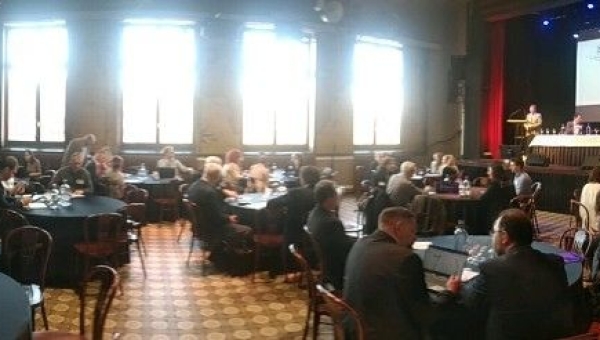
Last March 23, Coordinator Paolo Capuano (University of Salerno, Italy) presented CORE at the CERIS – Community for European Research and Innovation for Security Cluster Conference on Disaster-Resilient Societies (DRS) organised by the European Commission – DG HOME: “Building resilient society through a transdisciplinary collaboration between environmental and social science”.
Within the session on Societal Resilience (chaired by LINKS), the audience could learn about the transdisciplinary approach of CORE and some main insights, such as the upcoming:
1. Elaboration of a crisis modelling framework, to describe disaster scenarios and dynamics;
2. Definition and testing of suitable indicators, to assess the weight of human factors;
3. Methodology for more efficient use of social media in disaster situation;
4. Involvement of citizens and communities in resilience building.
With the impulse of the Crisis Management Innovation Network Europe (CMINE), it was also the occasion to meet for the first time all the sister projects of our DRS01 Cluster – LINKS, BuildERS, RESILOC, ENGAGE, RiskPacc –, for an interesting networking, and also for a fruitful panel discussion whose addressed question are here below:
1. How to turn a strategic operational tool into a decision-making process in local communities (with Katja Banovec Juros for RESILOC);
2. Disregarded vulnerability factors/unexpected sources of resilience & recent crises experiences of the care organisations as the key intermediaries between the most vulnerable and the disaster management authorities (with Kati Orru & Alexandra Olson for BuildERS);
3. Social media and crowdsourcing for inclusive approaches in disaster management processes & Concrete examples (with Francesco Maria Graziani for LINKS);
4. The role of alerting message systems in present and future societal resilience & the main opportunities and challenges, of using advanced communication technologies (with Michael Tor Sargeant for ENGAGE);
5. The differences in risk perception between civil protection authorities and citizens in hazard prone locations (with Maureen Fordham for RiskPacc);
6. The comparative analysis of different safety cultures, knowledge transfer and transdisciplinary perspective (environmental and social sciences) of CORE ,with Paolo Capuano & Marie-Christine Bonnamour;
7. Expert question to Samuel Rufat (for RESILOC) on the strategies for disaster resilience qualitative and quantitative analyses about the perception and behaviour of diverse society group, & the current challenges to be addressed in EU research on perception and behaviour.
***
The CORE Consortium is happy having been part of the event, warmly thanks the organisers (Philippe Quevauviller, CERIS, DG HOME) and will be happy to attend the next CERIS state-of-play events.
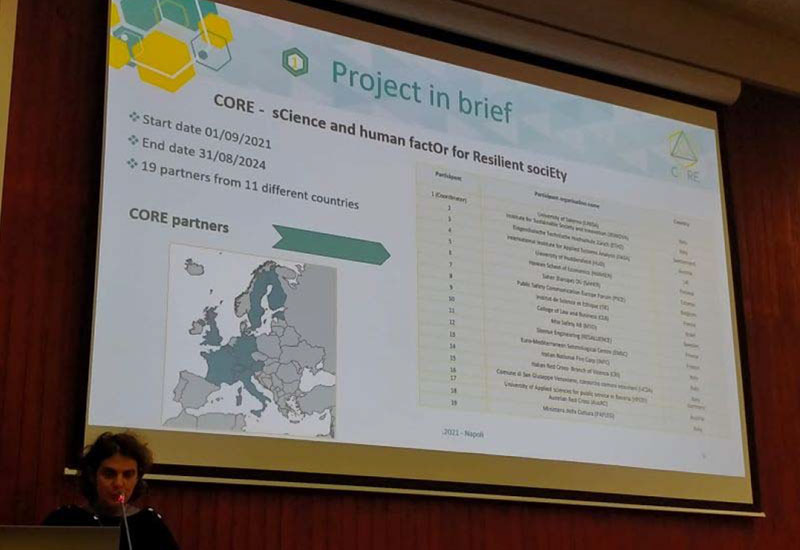
Last 30th of November 2021, CORE was presented at the two-days PSCE Conference in Brussels – 2021 under the topic “Climate Emergencies: how to improve preparedness?”.
The scale, frequency and unpredictability of crises seem to be increasing and the resulting consequences are becoming more and more dramatic. All actors involved in such crises, from public authorities to solution providers, are concerned and constantly seek to better prevent and minimise their impact. The conference, that gathered around 80 participants, was attended by a variety of EU officials and experts (DG CNECT, DG ECHO, DG HOME, ESA) who provided valuable policy insights relevant to the themes and topics addressed.
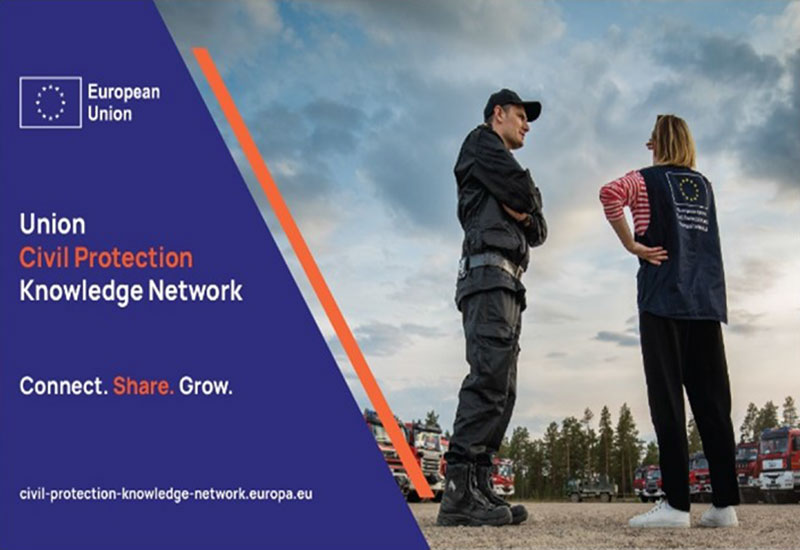
Few days before the Knowledge Network Day on 7th of December and its launch, it was the occasion to discover the Union Civil Protection Knowledge Network (UCPNK) that will aim at boosting the EU civil protection and disaster management system to enable it to tackle existing and emerging challenges.
PSCE just released its Conference Report: you will find, among other things, the transcript of the presentations of UCPNK and CORE, respectively given by Felix Bloch, Head of Unit for “Knowledge Network and Evidence-Based Policy” at the European Commission (DG ECHO) and Marie-Christine Bonnamour, PSCE Secretary-General.

![[EVENT]: Joining the RiskPACC Final Event](/images/2024/07/16/Mavi !!_thumbnail.png)
![📢[EVENT] CORE at the UCPKN Forum 📢](/images/2024/06/13/UCPKN Forum _thumbnail.png)


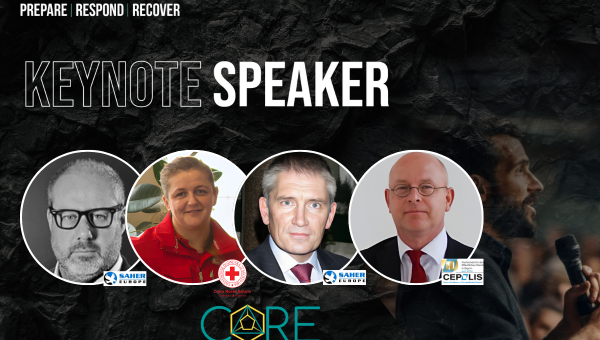
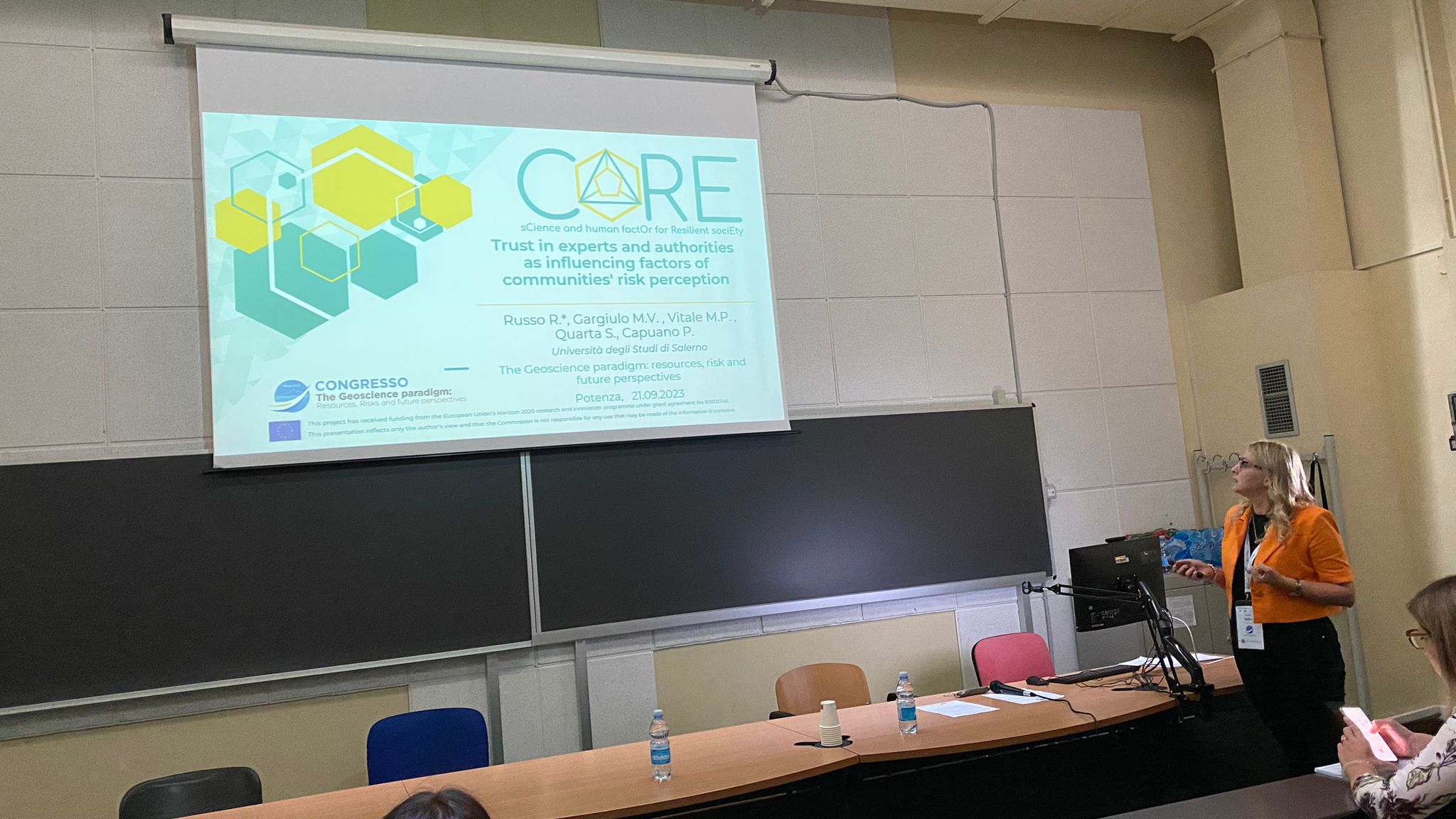
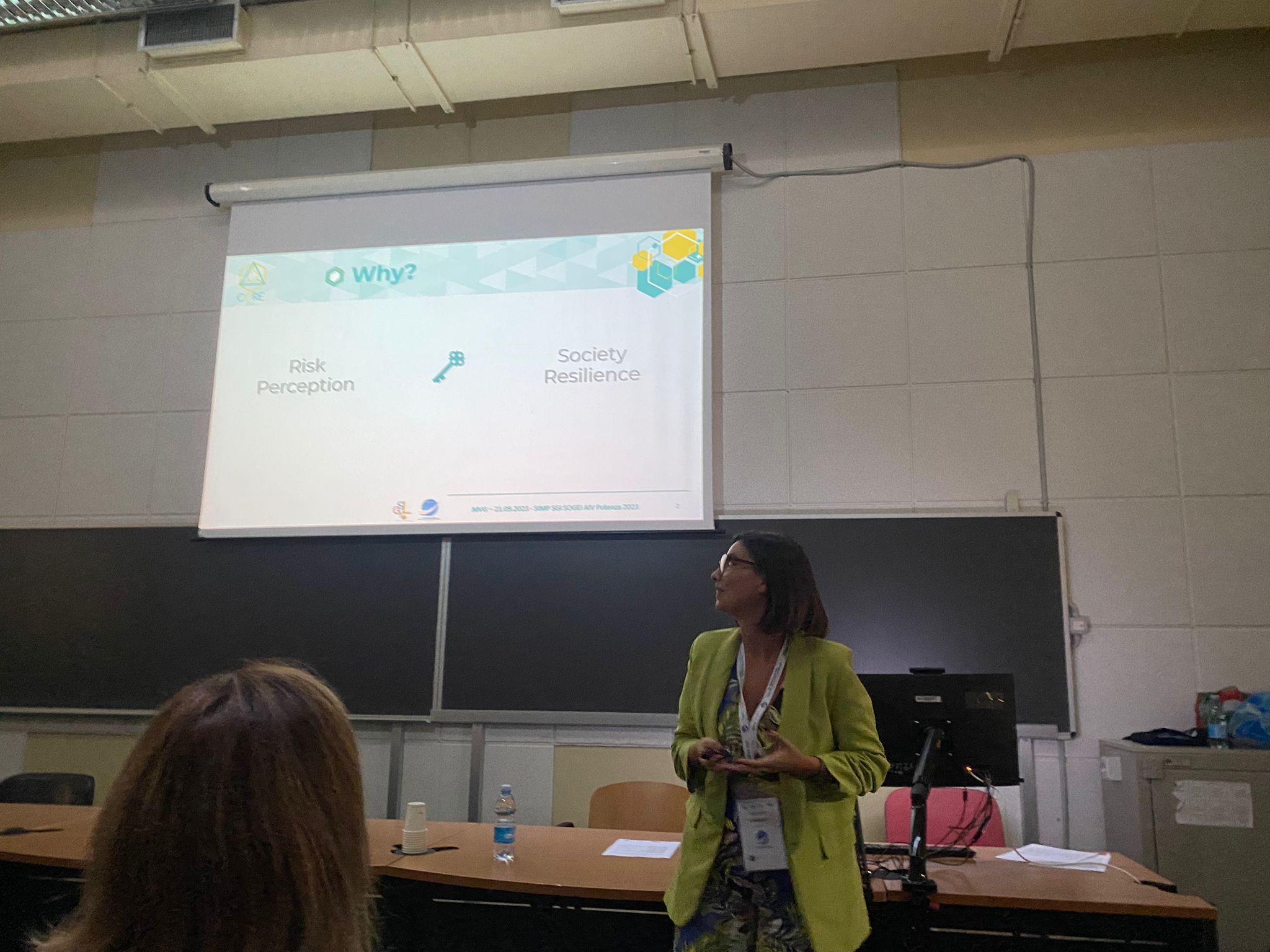
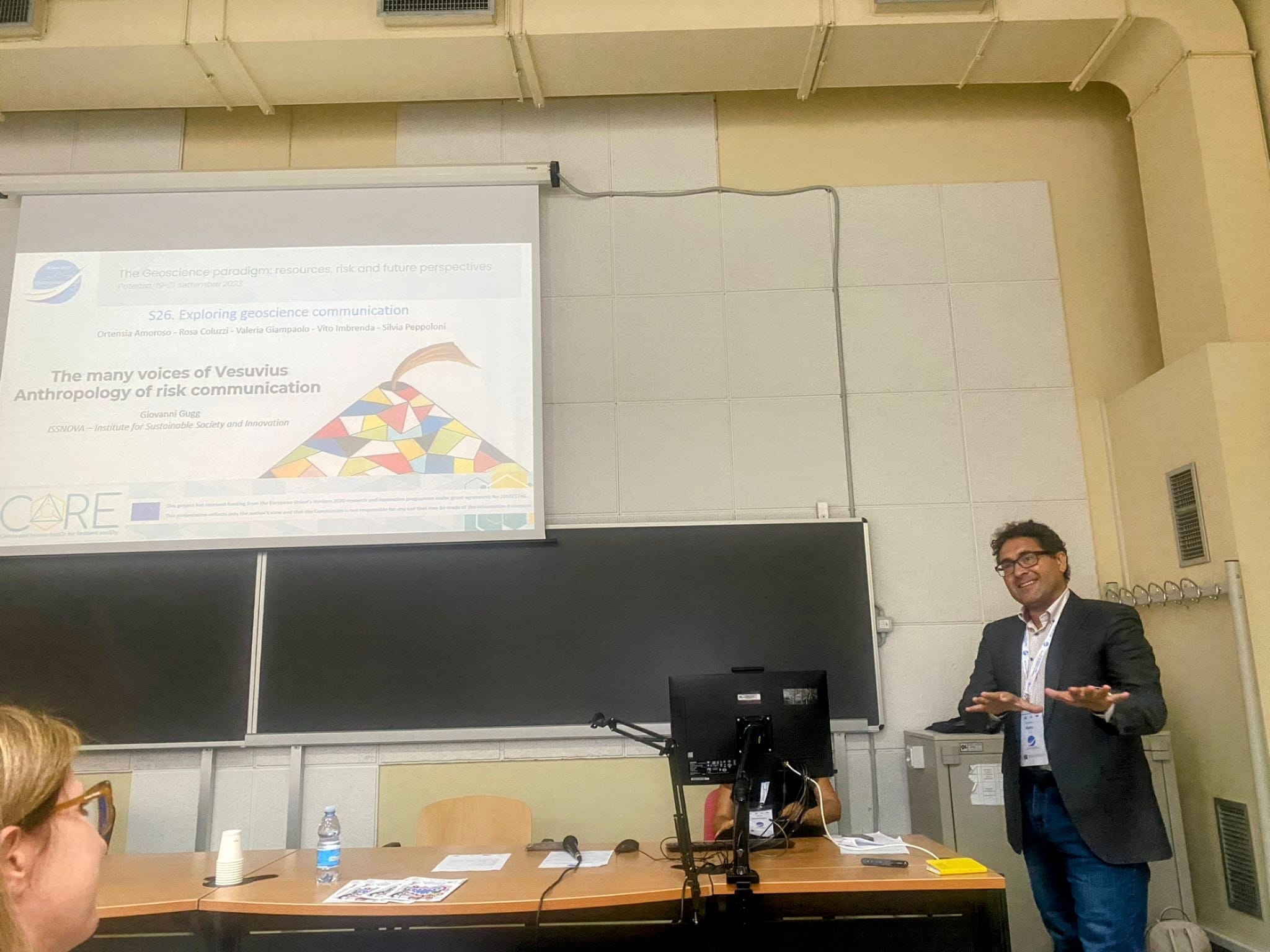
![📢[EVENT] CORE attends the CERIS European Forum for Risk Governance and Societal Resilience in Toulouse 📢](/images/2023/05/30/CORE_PIC_CERIS_thumbnail.jpg)